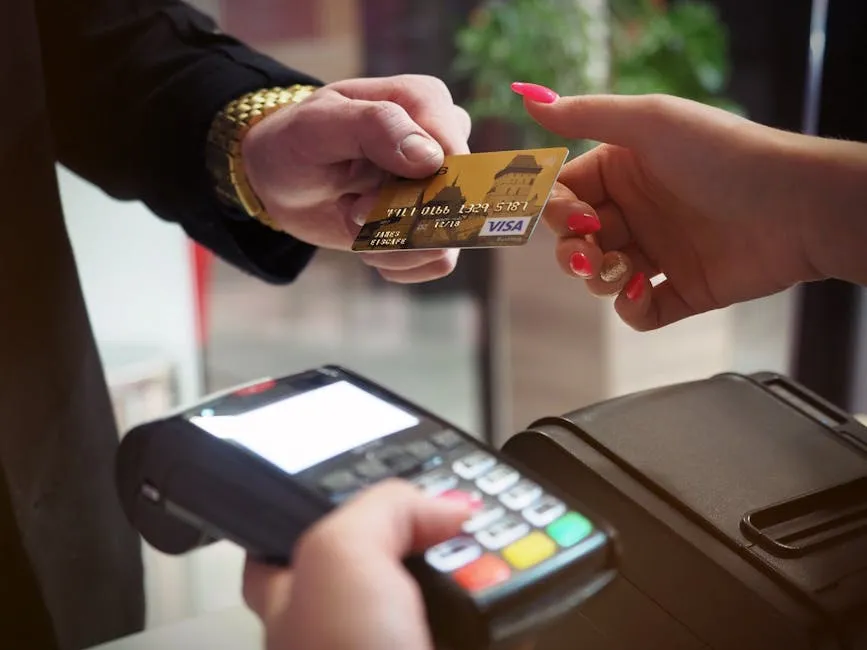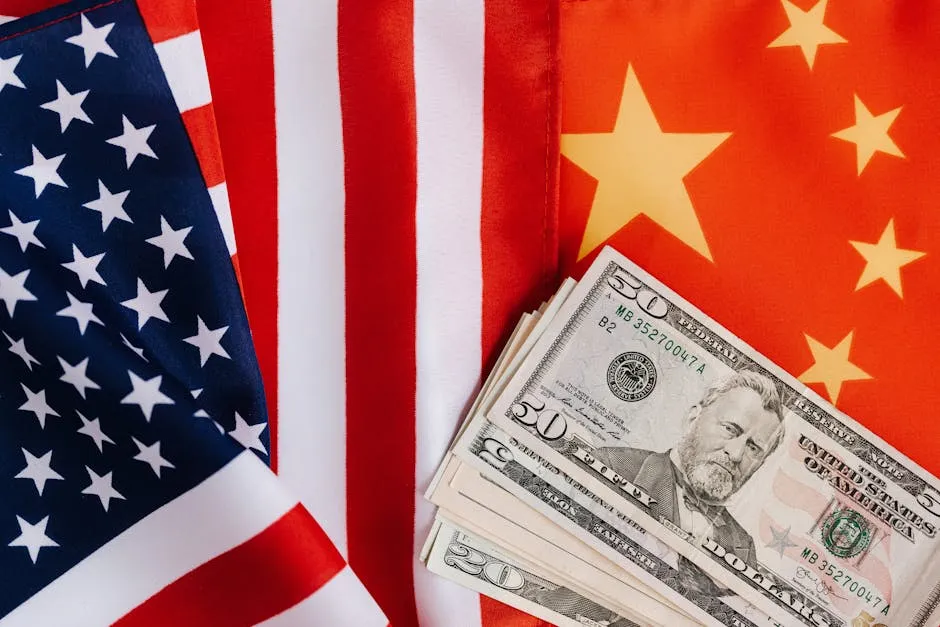
Why is Cash App UK Closing?
Introduction
In a surprising turn of events, Cash App is packing its bags and leaving the UK market behind. As the app prepares for its final exit on September 15, 2024, many users are left wondering why such a popular payment service is shutting down operations in a region where it had established a significant presence. Is it a case of poor performance, regulatory challenges, or simply a strategic pivot?
First launched in the UK in 2018, Cash App aimed to conquer the peer-to-peer payment landscape. It found itself in fierce competition with local players like Revolut and Monzo. Despite its initial promise, Cash App struggled to gain significant traction. The absence of features such as Bitcoin trading, which was a hit in the US, likely hindered its growth.
Block, the parent company of Cash App, has announced that it will now refocus efforts on the US market. This strategic shift is not a light decision. The company stated, “We do not make decisions like this lightly, as we know they impact our customers, our partners, and our team members who have helped us build to where we are today.”
Cash App’s departure raises questions about the future of fintech in the UK. With regulatory hurdles, intense competition, and a shifting focus, the closure seems to be a culmination of various challenges. As Cash App users brace for this transition, they must also consider their next steps. Spoiler alert: there are alternatives!
What does this mean for everyday users who relied on Cash App? It’s time for them to explore other payment services that can fill the void. While the news may be disappointing, it also opens the door to innovative alternatives in the UK market.
Stay tuned as we unpack the reasons behind Cash App’s closure and spotlight the alternatives that await its users. After all, change can be a gateway to new opportunities!

Summary of Key Points
The decision for Cash App to exit the UK market is multifaceted. Primarily, the company, owned by Block, is shifting its focus back to the US, where it aims to deepen engagement rather than expand internationally. This move has implications for Cash App’s UK users, who must now navigate the closure while ensuring their funds are safely withdrawn.
The closure, while disappointing, opens the door for alternative payment solutions that can fill the void left behind. This article will explore the reasons for Cash App’s exit, the impact on users, and viable alternatives available to those affected.
Speaking of alternatives, if you’re looking to dive into the world of cryptocurrency, check out A Beginner’s Guide to Bitcoin by Antony Lewis. This book is perfect for those who want to understand the ins and outs of Bitcoin without feeling like they need a PhD in finance!

The Reasons Behind Cash App’s Closure in the UK
Strategic Shift by Block
Cash App’s exit from the UK market is part of a broader strategy by its parent company, Block. The decision reflects a renewed focus on the US market, where Cash App has seen considerable success. Launched in 2018, Cash App initially aimed to disrupt the UK payment landscape. However, after six years of operation, Block determined that resources would be better utilized in the US.
In an official announcement, Block stated, “We do not make decisions like this lightly, as we know they impact our customers, our partners, and our team members who have helped us build to where we are today.” This statement underscores the weight of their decision. The company emphasized that their strategic approach now prioritizes growth within the US rather than spreading themselves thin across multiple markets. This recalibration aims to enhance customer engagement and improve overall service efficiency.
Block’s shift is not an isolated incident. Many fintech companies are reassessing their international strategies in light of recent economic challenges. Focusing on a single market allows for deeper investment in technology, customer experience, and innovative financial solutions. As Cash App pivots back home, it aims to solidify its standing as a leading player in the US payment sector.

Regulatory Challenges
Operating in the UK presented Cash App with various regulatory hurdles that proved difficult to navigate. The UK has stringent financial regulations designed to protect consumers, which can be a double-edged sword for fintech companies. Unlike the relatively relaxed regulatory environment in the US, UK regulations require rigorous compliance, often involving lengthy approval processes and substantial operational adjustments.
Cash App struggled to align its services with the UK’s compliance requirements. For instance, it lacked features that gained popularity in the US, such as Bitcoin trading. The absence of these functionalities limited Cash App’s appeal in a market that increasingly values cryptocurrency services. Research shows that the UK’s regulatory framework is significantly more complex than that of the US, making it challenging for companies like Cash App to flourish.
Furthermore, as fintech regulations continue to evolve, maintaining compliance becomes an uphill battle. Block’s decision to exit the UK reflects an understanding of these challenges, recognizing that it could better allocate resources by streamlining operations within a more familiar regulatory environment.

Market Competition
The UK fintech landscape is crowded, with established players like Revolut and Monzo setting high standards for user experience. These competitors have rapidly gained market share by offering innovative features and competitive pricing. Cash App found it increasingly difficult to differentiate itself in such a saturated market, where consumer loyalty is fickle.
Despite its US success, Cash App struggled to establish a significant presence in the UK. Local competitors have built robust ecosystems that cater effectively to user needs, making it challenging for Cash App to carve out its niche. The competition has not only been fierce but also highly adaptive, responding quickly to changing consumer preferences and market trends.
Factors contributing to Cash App’s struggles in the UK include its limited feature set and the lack of localized marketing strategies. While Cash App offered essential peer-to-peer payment services, it could not match the innovative features that users had come to expect from its competitors. As a result, Cash App’s growth stagnated, prompting Block to reconsider its international ambitions.
In summary, the combination of a strategic pivot toward the US market, regulatory challenges, and intense competition ultimately led to Cash App’s closure in the UK. As the company shifts its focus back home, it aims to reinforce its position as a market leader while navigating the complexities of fintech operations. For UK users, this closure may be disappointing, but it also highlights the need to explore alternative payment solutions that can meet their evolving needs.
As Cash App users navigate this shift, exploring alternatives will be essential to meet their payment needs. alternative payment solutions
User Impact and Transition
How Users Will Be Affected
As Cash App prepares to close its UK operations on September 15, 2024, users need to be informed about their next steps. First and foremost, Cash App will directly notify all account holders regarding the closure. This communication will outline essential actions users must take to close their accounts properly.
To start the account closure process, users should log into the Cash App and follow the provided instructions. Typically, this involves verifying personal information and confirming the closure request. Once users initiate the process, they can expect a confirmation email outlining the status of their account. Cash App aims to make this transition as smooth as possible, prioritizing customer support during this period.
Now, let’s talk about funds. Users can breathe a sigh of relief: Cash App assures that all funds will remain safe until they are withdrawn. Even as the service winds down, users will retain access to their money. It’s essential to withdraw any remaining balance before the closure date to avoid future inconveniences. Cash App will provide clear instructions on how to transfer funds to external accounts, ensuring users have multiple options for accessing their money.
This closure may feel like a massive inconvenience, but rest assured, Cash App has your back. Your funds are safe, and the process will be straightforward. And while you’re at it, consider investing in your financial literacy with The Intelligent Investor by Benjamin Graham. It’s a classic that can help you make sense of the stock market while you’re figuring out your next payment app!

Alternatives to Cash App
With Cash App’s exit, users must now seek alternative payment services. Thankfully, several notable options can fill the gap left behind. Let’s take a look at some of the most popular alternatives: Wise, PayPal, and Cheddar.
Wise is an excellent choice for international payments. It offers low fees, with rates starting from just 0.33%. Transfer speed is impressive, typically taking up to two days, depending on the transaction. Wise is particularly known for its transparency and favorable exchange rates.
PayPal is another familiar name in the payment space. It allows users to send and receive money easily. For UK personal payments, it’s free, but international transfers incur a fee of around 5%. Transfers can take anywhere from 30 minutes to five days, depending on the transaction type. PayPal’s extensive user base makes it a reliable choice for many.
Lastly, let’s talk about Cheddar. This newer entrant is gaining traction thanks to its unique cash rewards system. Users can earn rewards on purchases made through the app. Cheddar offers a seamless experience for peer-to-peer payments, making it a worthy alternative for those looking to switch.
In terms of features, fees, and transfer speeds, each option brings something different to the table. It’s crucial to assess your specific needs and preferences before making a decision. Whether you prioritize low fees, speed, or rewards, there’s an alternative that can meet your expectations. And speaking of alternatives, if you’re ever curious about cryptocurrency’s impact on finance, you might want to check out Cryptocurrency: How Bitcoin and Digital Money are Challenging the Global Economic Order by Paul Vigna. It’s a fascinating read that dives deep into the world of digital currency!

As Cash App users transition, exploring these alternatives will help ensure they continue to enjoy hassle-free payments. Change can be daunting, but it also opens doors to new and exciting possibilities.

Overview of Top Alternatives
Wise
Wise stands out as a top choice for international payments. It offers low fees starting at just 0.33%. Users can send money to over 80 countries at the mid-market exchange rate. This means you won’t be hit with hidden fees. Plus, it allows you to hold multiple currencies in one account. Travelers will appreciate the local account details for various currencies, making transactions easier. Wise is user-friendly, with a mobile app that keeps you updated on your transfers. Overall, it’s a transparent and cost-effective solution for international money transfers.

PayPal
PayPal needs no introduction. It has become a staple in online payments. With its user-friendly interface, sending and receiving money is a breeze. Domestic personal payments within the UK are free, while international transfers attract a 5% fee. Users can also shop online and pay in physical stores via QR codes. The extensive acceptance of PayPal makes it a reliable option for many. Plus, its buyer protection policies add a layer of security that users appreciate. If you’re looking for an established and trusted payment service, PayPal is a solid choice.

Cheddar
Meet Cheddar, the rising star in the payment landscape. This app makes person-to-person payments seamless, just like Cash App. What sets Cheddar apart is its unique cash rewards system. Users earn instant rewards when purchasing gift cards through the app. This feature not only simplifies transactions but also adds value to everyday spending. Cheddar is designed to be user-friendly and accessible, making it an attractive alternative. Plus, the easy sign-up process and bonus offers make it worth considering for those making the switch.

Detailed Comparison Table
| App Name | Fees | Transfer Speed | Unique Features |
|---|---|---|---|
| Wise | From 0.33% | Up to 2 days | Multi-currency accounts, mid-market rates |
| PayPal | Free for UK payments; 5% for international | 30 mins to 5 days | Extensive user base, buyer protection |
| Cheddar | Varies (depends on rewards) | Instant for P2P payments | Cash rewards on gift cards |
This table provides a clear comparison of the key features of each alternative, helping users make an informed decision. Whether you prioritize low fees, speed, or rewards, these options have something to offer. As Cash App users transition, exploring these alternatives will ensure they continue to enjoy hassle-free payments.

Conclusion
In conclusion, Cash App’s exit from the UK is a significant reminder of the hurdles fintech companies face in a competitive and heavily regulated landscape. The decision to close its doors on September 15, 2024, is not just a simple business move; it reflects a broader strategy aimed at honing in on its core market—the United States. This strategic pivot by Block, Cash App’s parent company, underscores the complexities of navigating international markets, particularly when local competition and regulatory challenges abound.
While the closure may leave a noticeable gap in the UK market, it simultaneously opens up opportunities for users eager to explore new options. Many users might feel a sense of loss, but change often gives rise to fresh alternatives. As former Cash App users transition to other payment platforms, they can discover services that not only fill the void but may also bring enhanced features and benefits.
With various alternatives available, including Wise, PayPal, and Cheddar, users can now find solutions that cater to their financial needs while ensuring a seamless experience. These alternatives often offer a range of functionalities, from low fees to cash rewards, which can enhance the overall user experience. And if you’re looking to improve your financial literacy, consider picking up Personal Finance for Dummies by Eric Tyson. It’s a great resource for anyone looking to get their finances in order!

Moreover, this transition could encourage a more diverse fintech ecosystem in the UK, leading to innovation and improved services across all platforms. As Cash App users navigate this shift, they are encouraged to research and compare options that suit their individual preferences and requirements.
Ultimately, while Cash App’s departure is disappointing for many, it also emphasizes the importance of flexibility in the fintech industry. Users are now presented with a chance to reassess their payment methods and make informed choices that align better with their financial habits. Embracing these alternatives can lead to a more fulfilling and rewarding financial experience.

FAQs
Why is Cash App closing in the UK?
Cash App is closing its UK operations to refocus on the US market. Block, its parent company, has made this strategic shift to prioritize growth domestically rather than expand internationally. Regulatory challenges and fierce competition in the UK played significant roles in this decision.
What happens to my funds after Cash App shuts down?
Users can rest easy; all funds in Cash App will remain safe until they are withdrawn. Cash App will provide clear instructions on how to access and transfer funds to external accounts before the closure date.
What are the best alternatives to Cash App for UK users?
Recommended alternatives include: Wise: Great for international payments with low fees. PayPal: Widely accepted, ideal for personal payments. Cheddar: Offers cash rewards for gift card purchases. Each option caters to different needs, so users should choose based on their preferences.
Will I be able to use Cash App in the US?
Yes, Cash App will continue to operate in the US. Users there can continue using the app for peer-to-peer payments and other features. The closure only affects the UK market.
How do I transfer my funds to a new payment service?
To transfer funds, users should first withdraw their remaining balance from Cash App. Next, they can create an account with the new payment service of their choice and follow its instructions for adding funds. Most services provide easy steps for linking bank accounts or transferring money for a smooth transition.
Please let us know what you think about our content by leaving a comment down below!
Thank you for reading till here 🙂
All images from Pexels




